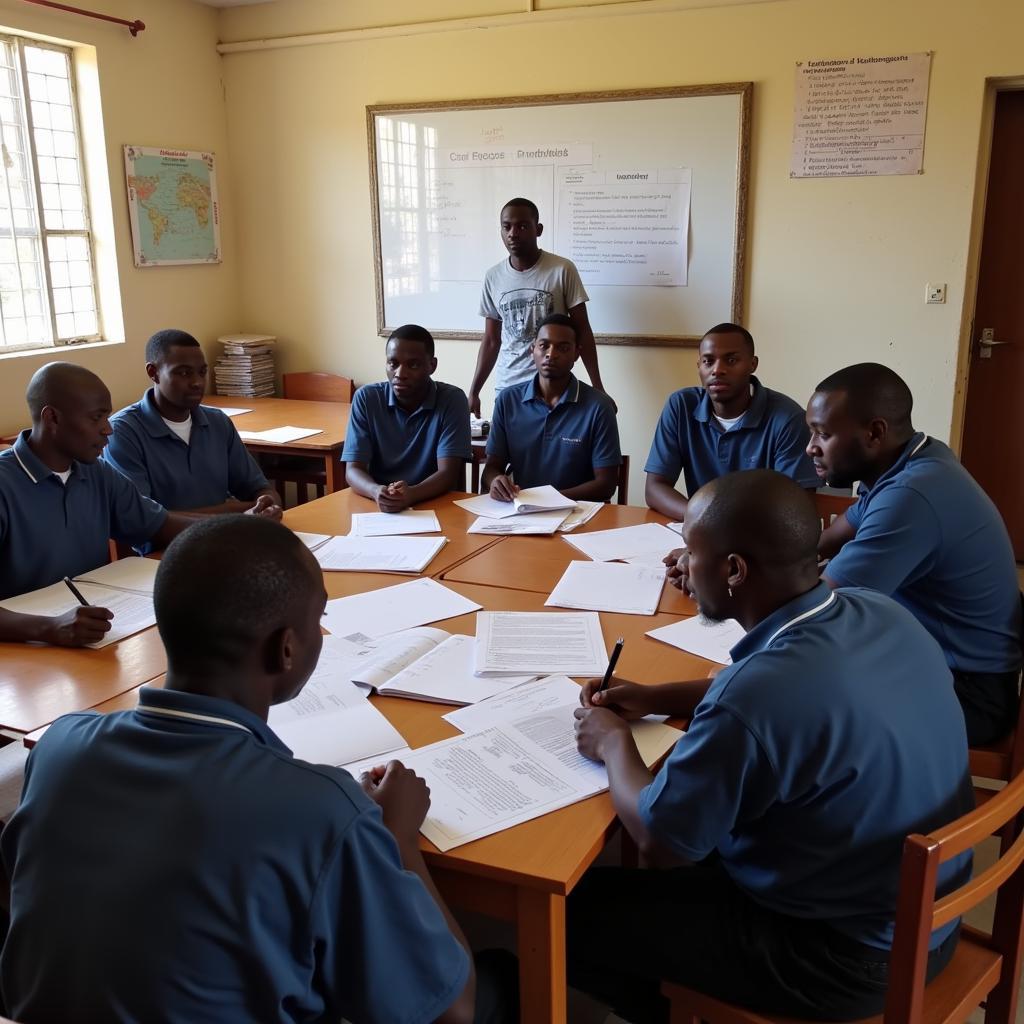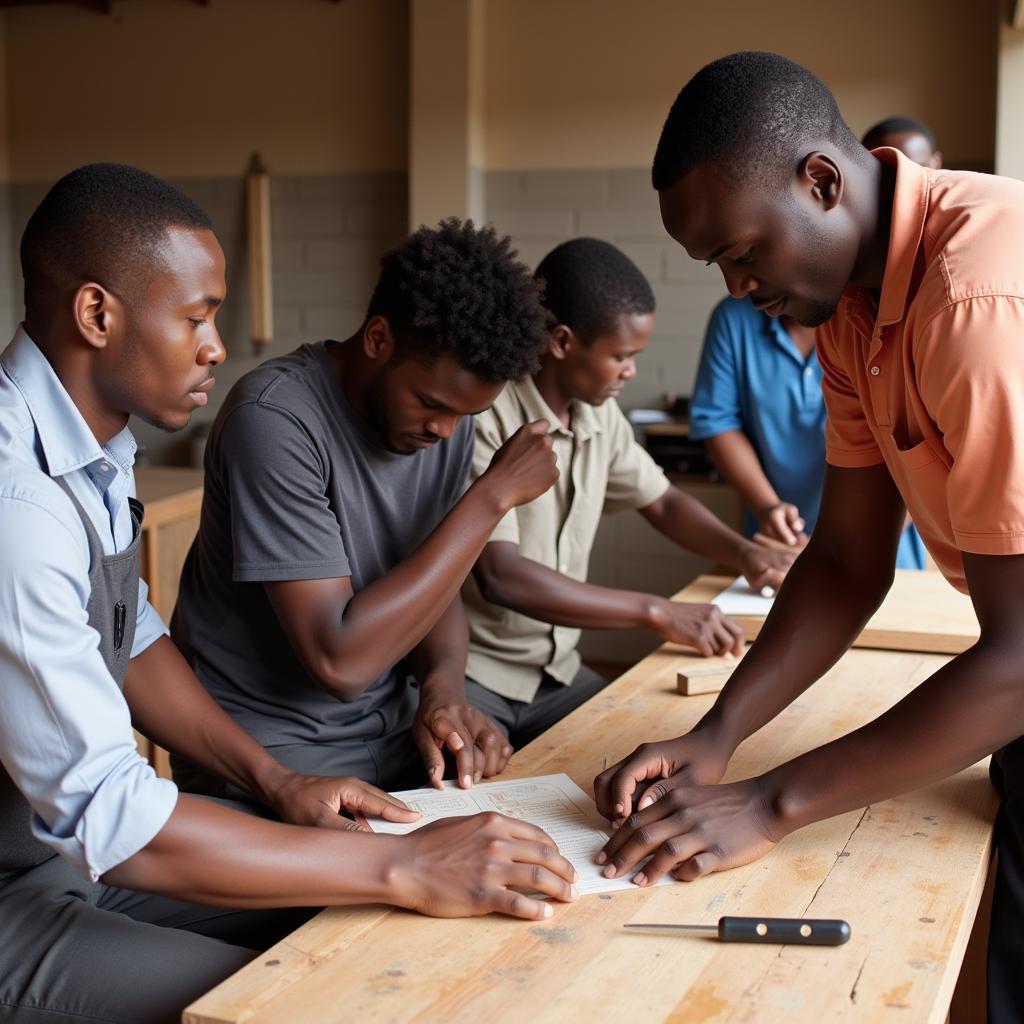Inside African Jails: A Look at Prison Life and Challenges
African Jail systems are complex and often face significant challenges. This article explores the realities of prison life in Africa, shedding light on the issues faced by inmates and the systems themselves. We will delve into the diverse conditions, historical contexts, and ongoing efforts to reform these institutions.
There are several factors that contribute to the current state of many African jails. Overcrowding, inadequate resources, and limited access to healthcare are some of the most pressing concerns. These problems are often exacerbated by systemic issues such as corruption and a lack of judicial oversight. Understanding the complexities requires a nuanced approach, considering the historical and socio-economic context of individual nations. For instance, a recent article highlighted an African jailed for 27 years. This case highlights the complexities and sometimes harsh realities of the judicial system.
The Harsh Realities of African Prison Life
Daily life within African jails varies greatly depending on the country, the specific facility, and even the individual inmate’s circumstances. Basic necessities like food and water can be scarce, leading to malnutrition and disease. Sanitation is often poor, contributing to the spread of infectious illnesses. Beyond the physical hardships, inmates face psychological challenges stemming from isolation, fear, and uncertainty about their future. Many experience limited or no access to legal counsel, hindering their ability to navigate the legal system and ensure a fair trial.
Historical Context and Colonial Influence
Understanding the current state of African jails requires looking back at their historical development. Colonial legacies have significantly shaped these systems, often introducing penal codes and prison structures that were ill-suited to African societies. The focus during colonial times was often on control and punishment, rather than rehabilitation or reintegration. This has left a lasting impact on the approach to incarceration in many countries, hindering efforts to develop more humane and effective prison systems. Many African countries have struggled to reform these inherited systems, facing resource constraints and deep-rooted structural challenges.
Addressing the Challenges: Reform and Rehabilitation
Numerous organizations and individuals are working to improve conditions within African jails and promote reform within the justice system. Efforts focus on improving infrastructure, increasing access to healthcare and education, and promoting rehabilitation programs. Some initiatives also aim to address the root causes of crime, such as poverty and lack of opportunity, through community development projects and educational programs. There are also discussions about alternative sentencing and restorative justice practices, seeking ways to reduce reliance on incarceration and promote community healing. Even seemingly unrelated issues, such as those addressed in articles about African countries banning plastic bags, can indirectly affect prison conditions by potentially creating new economic opportunities and reducing environmental stress.
 African Prison Reform Workshop
African Prison Reform Workshop
What are the biggest challenges facing African prisons?
Overcrowding, inadequate resources, and a lack of access to healthcare are among the most significant challenges.
How does colonial history impact African jails?
Colonial legacies have shaped prison systems, often introducing structures ill-suited to African societies.
What are some efforts being made to reform African prisons?
Efforts focus on infrastructure improvements, increased access to healthcare and education, and rehabilitation programs.
Dr. Abimbola Adebayo, a leading expert on African criminal justice systems, states, “Addressing the root causes of crime is crucial for effective prison reform in Africa. We must focus on creating opportunities for education, employment, and social reintegration.”
The Future of Incarceration in Africa
The future of African jails depends on sustained commitment to reform, increased investment in resources, and ongoing dialogue between governments, civil society organizations, and the international community. By addressing the root causes of crime, investing in rehabilitation programs, and promoting human rights within prison walls, African nations can work towards creating more just and effective criminal justice systems. These systems can then contribute to safer and more stable societies. The conversation also extends to discussions about leaders, such as those mentioned in the article African dictators still in power, and their influence on justice systems.
 African Prison Reintegration Program
African Prison Reintegration Program
The article on African American female cops highlights the complexities of law enforcement and justice systems, offering a different perspective but with relevant themes that resonate with the challenges faced in African contexts. Even seemingly unrelated stories, like the one about an African clawed frog jumped out of tank, remind us of the importance of adaptable and resilient systems, a concept applicable to prison reform as well.
In conclusion, African jails face significant challenges, but there is also hope for positive change. Through continued efforts and a focus on rehabilitation and reintegration, it is possible to create more humane and effective prison systems that contribute to safer communities. Addressing the complexities of African jail requires a comprehensive approach, considering the historical context, current challenges, and ongoing efforts for reform.
FAQ
- What are the common health issues faced by inmates in African jails?
- How can I support organizations working on prison reform in Africa?
- Are there any successful reintegration programs for former inmates in Africa?
- What are the legal rights of prisoners in African countries?
- How does overcrowding affect the mental health of inmates?
- What role does corruption play in the challenges facing African jails?
- What are some alternative sentencing options being explored in Africa?
Looking for more information on related topics? Explore other articles on our website about human rights, criminal justice reform, and development in Africa. We encourage you to stay informed and engage in the conversation.
When you need assistance, please contact us at Phone Number: +255768904061, Email: kaka.mag@gmail.com Or visit us at: Mbarali DC Mawindi, Kangaga, Tanzania. We have a 24/7 customer service team.

